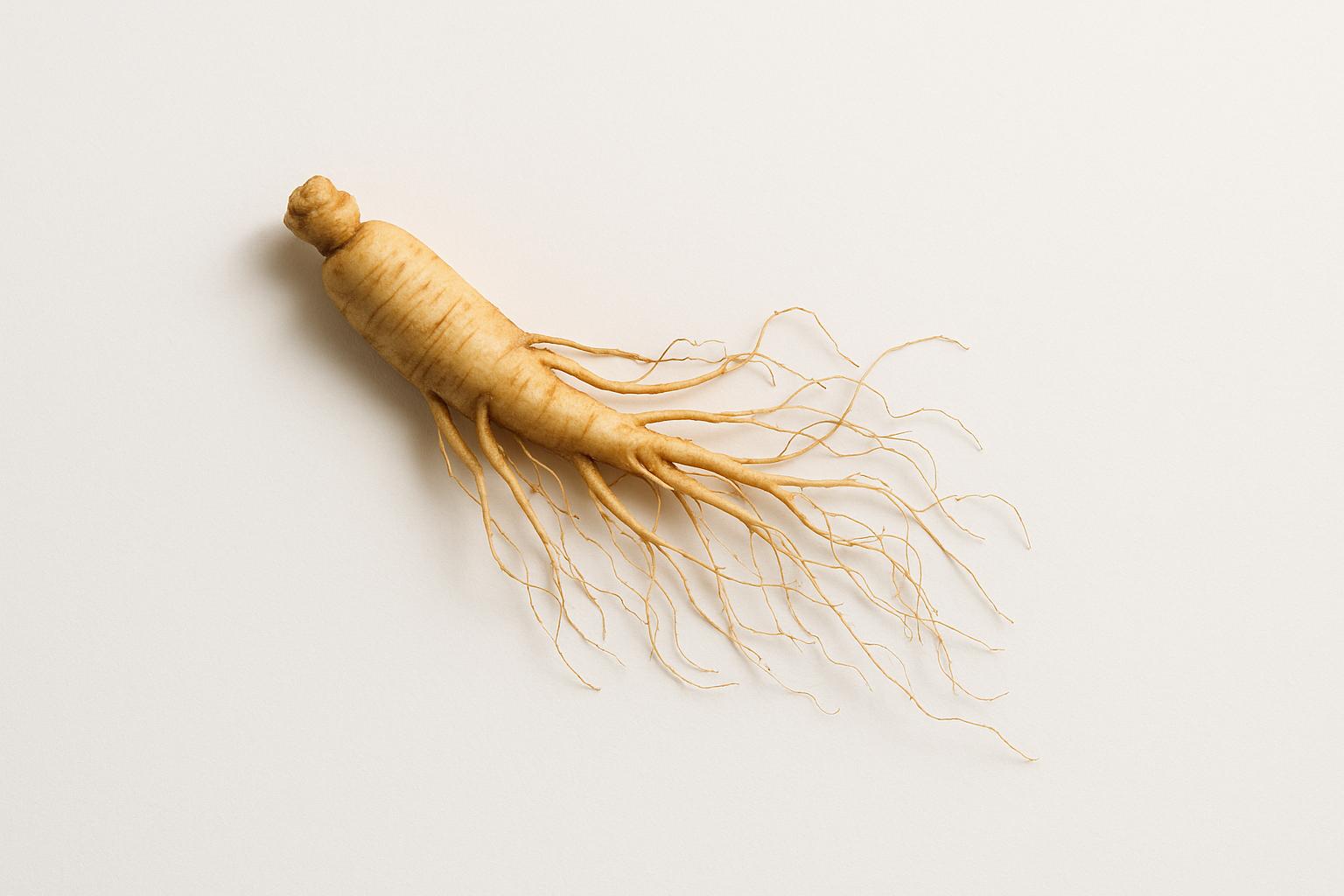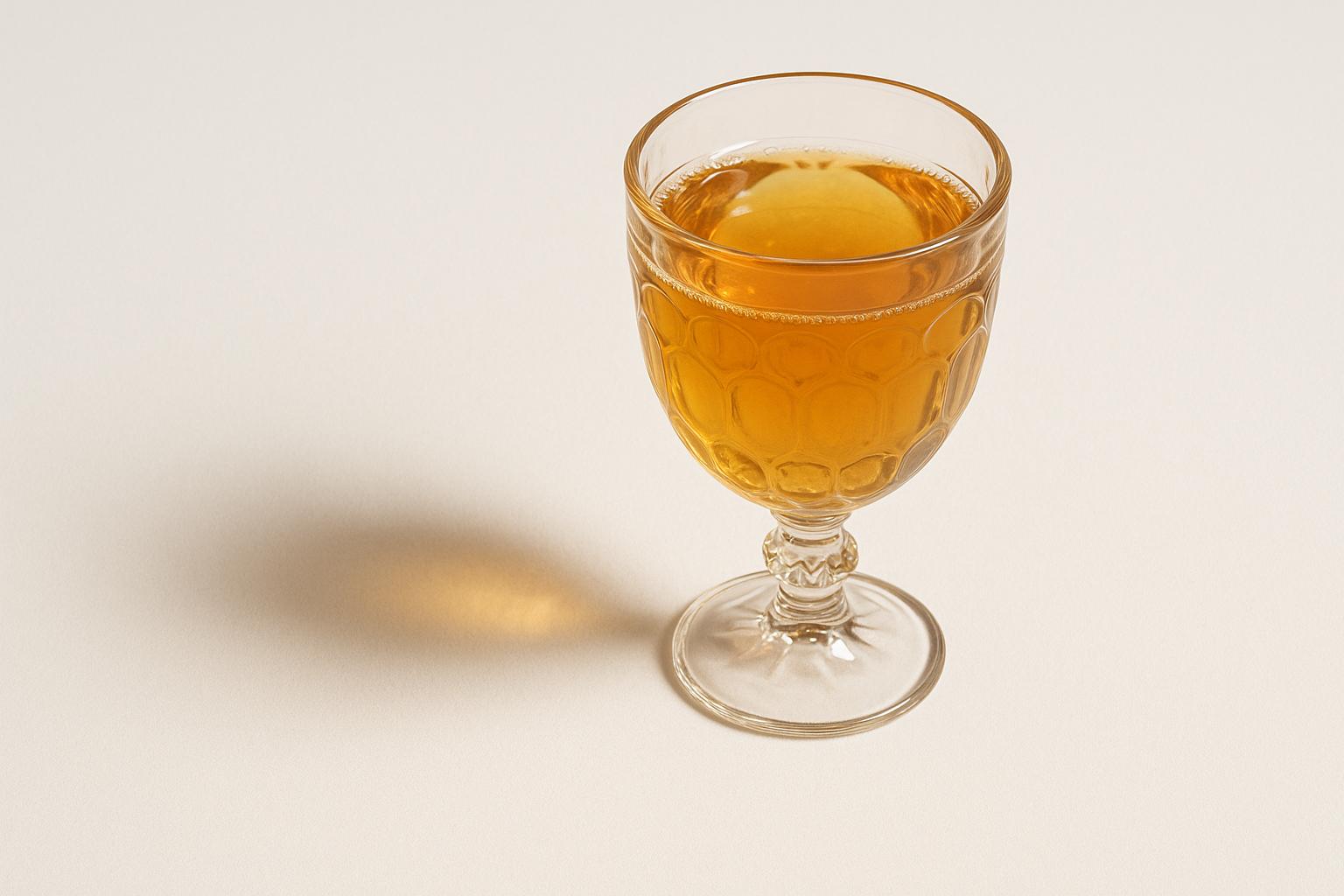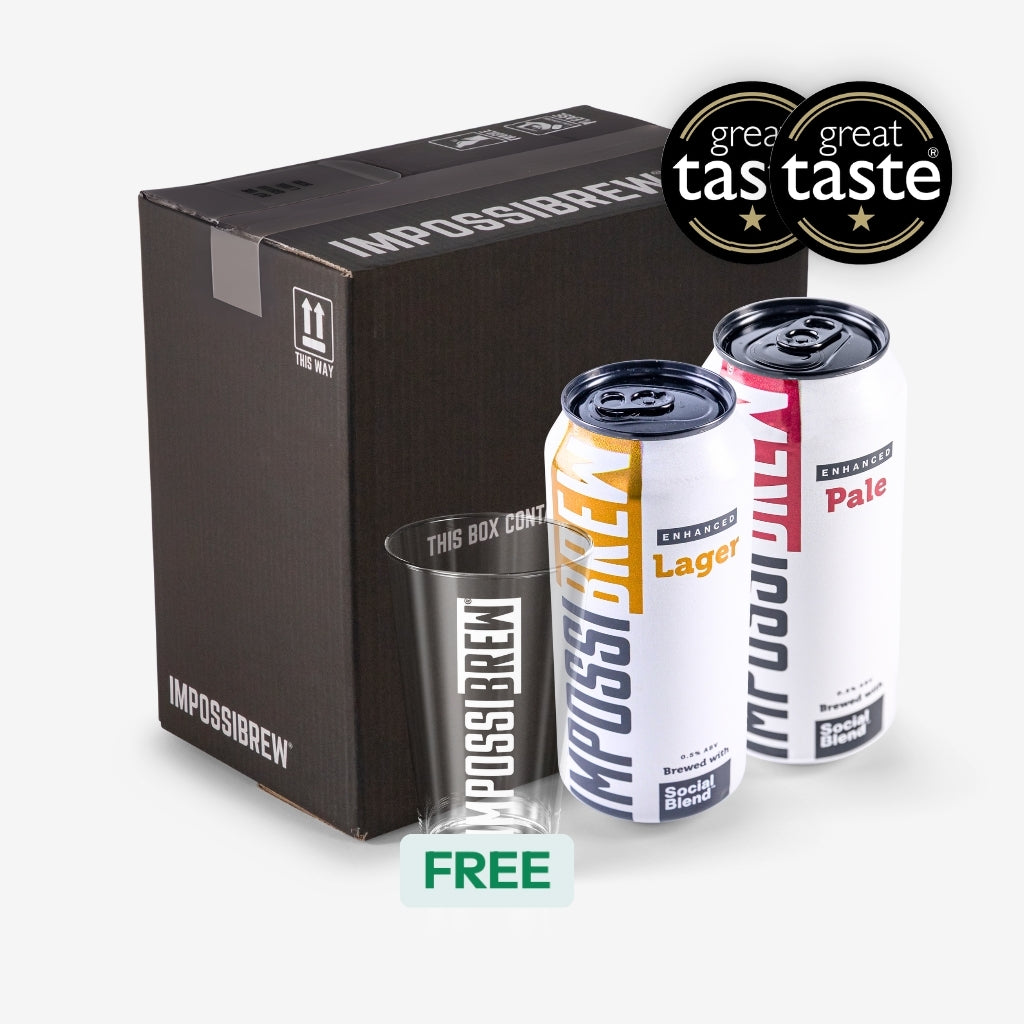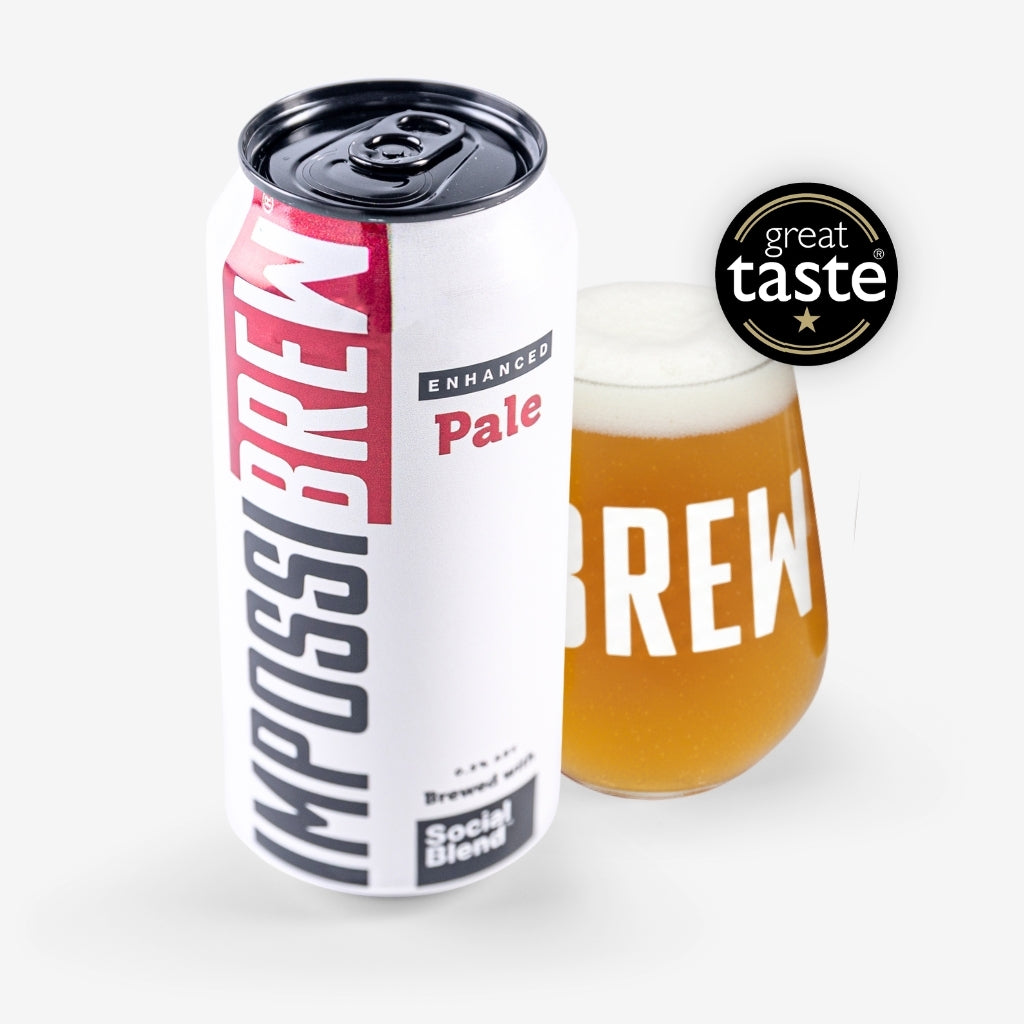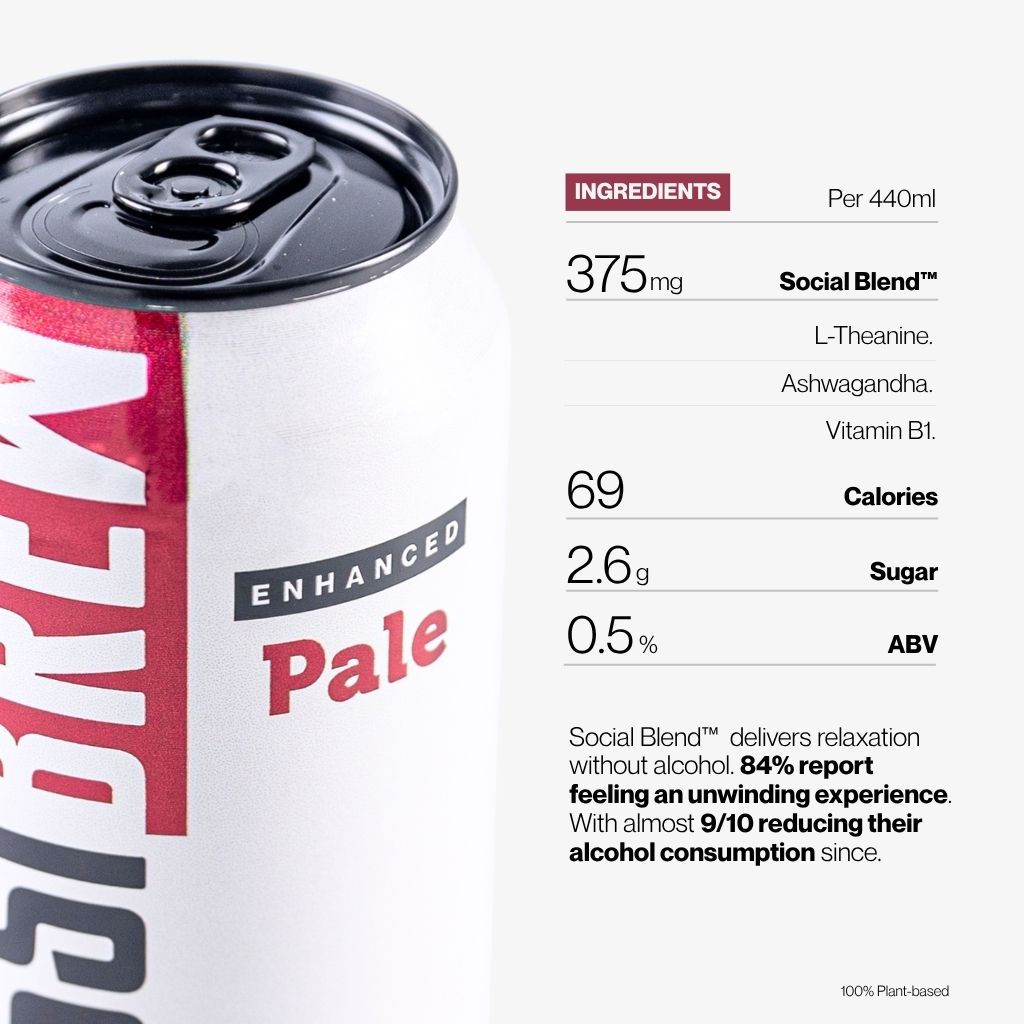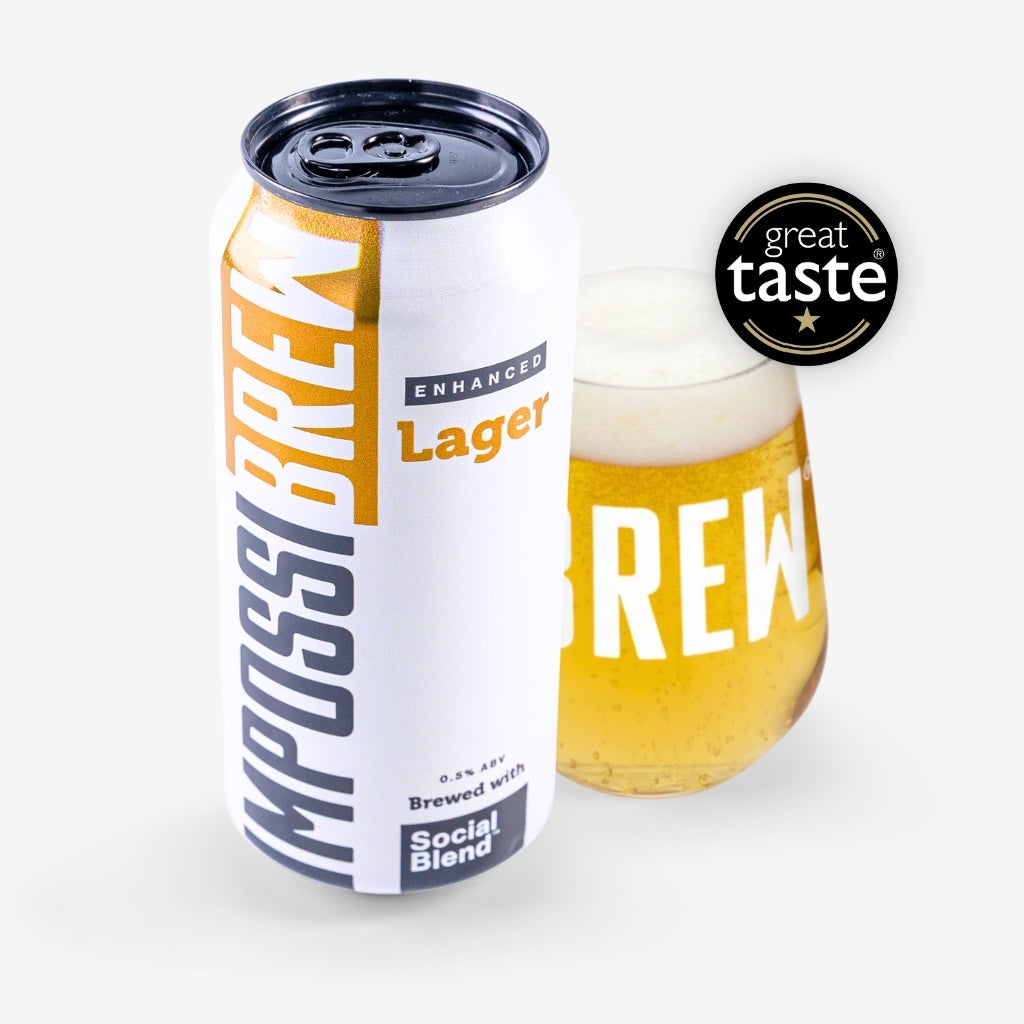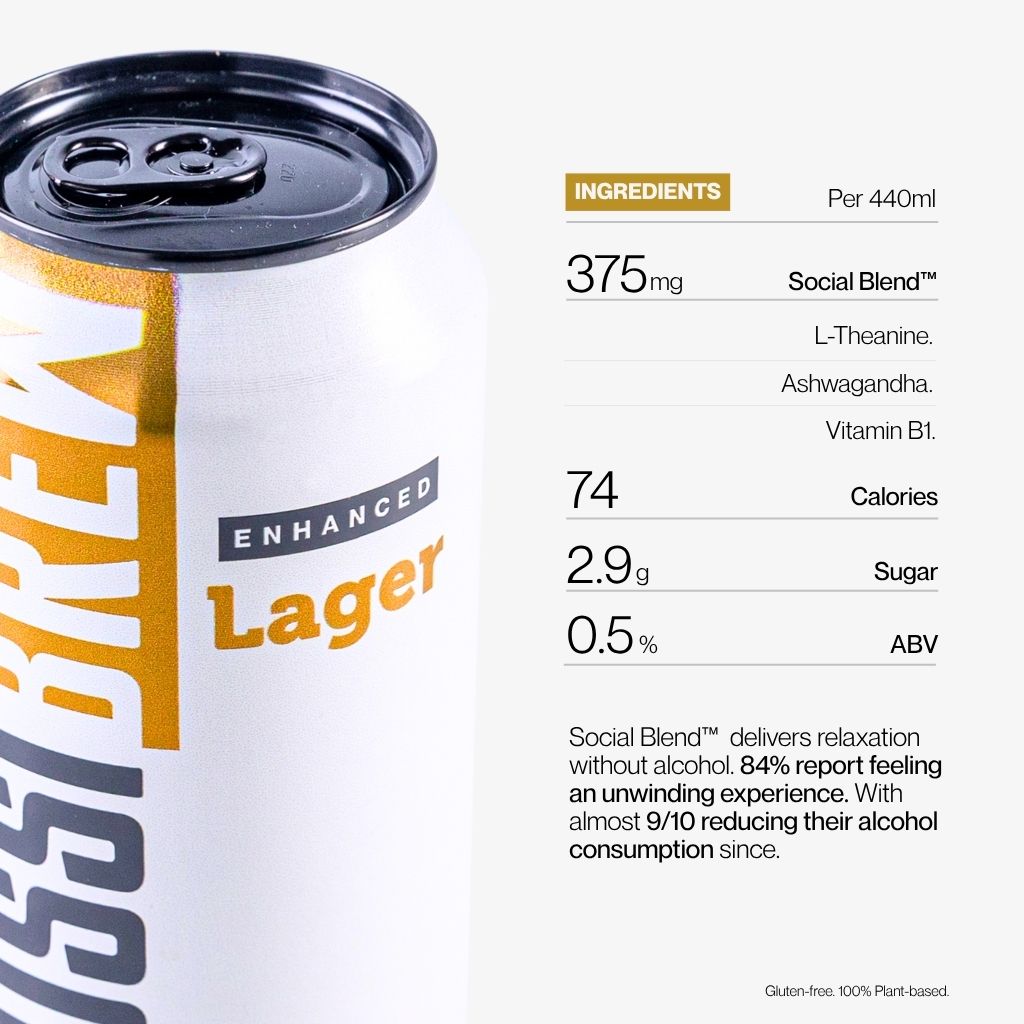How Gut Health Drinks Support Long-Term Memory
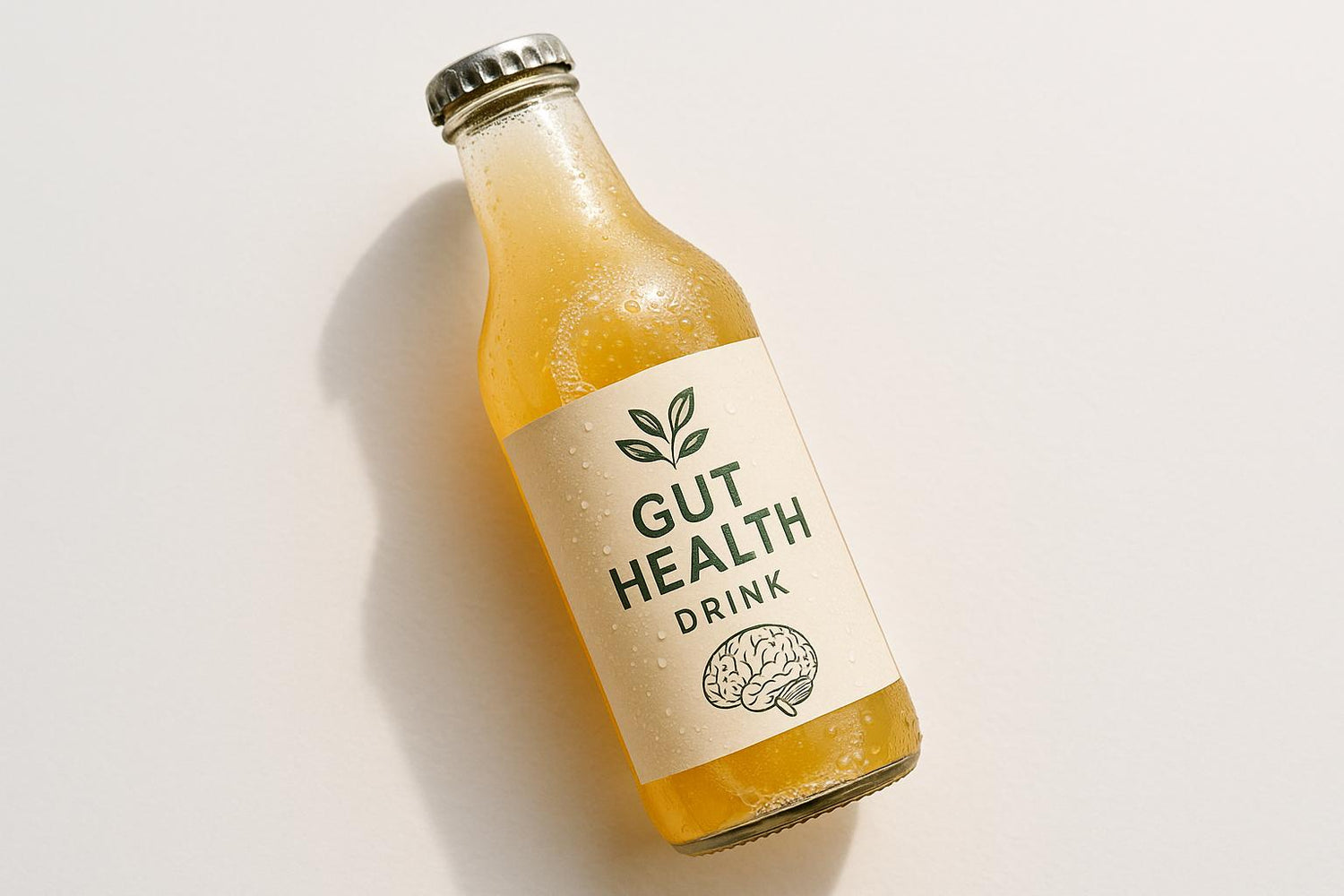
Your gut health may hold the key to improving your memory. Research shows a strong link between the gut-brain axis and cognitive function, with gut bacteria influencing neurotransmitters, inflammation, and memory processes. Functional drinks like kefir, kombucha, and non-alcoholic beers with targeted ingredients are emerging as practical ways to support this connection.
Key Takeaways:
- Gut and Memory Connection: Gut bacteria produce neurotransmitters (e.g., serotonin, GABA) and compounds like butyrate, which promote brain health and memory.
- Gut Health Drinks: Options like kefir, kombucha, and prebiotic beverages help balance gut bacteria and reduce inflammation.
- Non-Alcoholic Beers: Brands like IMPOSSIBREW® offer gut-friendly beers with ingredients supporting relaxation and cognitive health.
- Consistency is Critical: Memory improvements often take 8–12 weeks of regular use.
By incorporating gut health drinks into your routine, you may strengthen your gut-brain connection and support long-term memory.
How Gut Health Affects Memory Function
Gut Bacteria and Brain Communication
The connection between the gut and brain, often referred to as the gut–brain axis, plays a significant role in memory function. Certain gut bacteria communicate with the brain through various pathways, influencing how memory is processed. For instance, gut microbes produce neurotransmitters like GABA, which are directly involved in memory and other cognitive functions. This makes the gut a key player in neurotransmitter production, tying it closely to overall brain health.
The vagus nerve acts as a vital bridge in this communication network, linking the brainstem to the digestive system. When beneficial bacteria stimulate the vagus nerve, it can increase the release of brain-derived neurotrophic factor (BDNF), which is known to support memory and learning.
Additionally, gut bacteria ferment dietary fibre to produce short-chain fatty acids (SCFAs) like butyrate, propionate, and acetate. Among these, butyrate stands out for its ability to cross the blood–brain barrier, where it promotes neurogenesis in the hippocampus - a region critical for memory - and helps reduce inflammation. These mechanisms highlight the profound impact gut health can have on brain function.
Given this intricate relationship, approaches such as probiotics, prebiotics, and synbiotics are being explored to strengthen the gut–brain connection and potentially improve memory.
Probiotics, Prebiotics, and Synbiotics Explained
These three components are central to supporting the communication between gut bacteria and the brain.
Probiotics are live, beneficial bacteria that help maintain a balanced gut microbiome. Certain strains have shown potential for improving memory and reducing stress. For example, Bifidobacterium longum has been linked to lower cortisol levels and reduced inflammation, while Lactobacillus rhamnosus may boost GABA production, improving stress resilience. By suppressing harmful bacteria, probiotics create an environment where beneficial microbes can thrive.
Interestingly, research suggests that multi-strain probiotics may be more effective than single-strain ones. A diverse mix of bacterial strains can better support various brain functions by fostering a more resilient gut microbiome.
Prebiotics are a type of fibre that feeds beneficial gut bacteria, encouraging their growth and activity. Common examples include inulin, fructooligosaccharides (FOS), and galactooligosaccharides (GOS). When these fibres are fermented by gut bacteria, they produce SCFAs, which can enhance neuroplasticity - the brain's ability to form and reorganise connections vital for memory and learning. Prebiotics also help maintain a stable population of good bacteria over time, ensuring long-term gut health.
Synbiotics combine probiotics and prebiotics into a single product, offering a dual approach to gut health. The prebiotic component provides essential nutrients for the probiotics, helping them survive and flourish. Some studies suggest that synbiotics may improve cognitive function by addressing both short-term and long-term needs for a healthy gut environment.
Together, these interventions underline how gut health can influence brain function and memory, offering exciting possibilities for future research and practical applications.
Why Memory Decline Is Hard to Address
Lifestyle and Diet Problems
Modern lifestyles in the UK play a significant role in memory challenges, especially through their impact on gut health. Diets rich in processed foods, sugars, and refined carbohydrates often lack the nutrients needed to support beneficial gut bacteria. This imbalance disrupts the intricate communication between the gut and the brain, which is essential for cognitive health.
Chronic stress adds another layer of complexity. Elevated cortisol levels from stress can weaken the gut barrier and reduce bacterial diversity, making it harder for the brain to recover. A sedentary lifestyle compounds the issue, as reduced physical activity limits blood flow to both the gut and the brain, cutting off the delivery of essential nutrients. On the other hand, regular exercise supports the growth of beneficial bacteria, which produce compounds like butyrate - linked to brain health. However, staying consistently active can be a challenge for many.
Sleep deprivation further complicates things by disrupting the natural rhythms of gut bacteria, which can alter the production of neurotransmitters. This creates a vicious cycle: poor gut health affects sleep quality, and inadequate sleep further impacts both gut and brain function.
The interconnectedness of these factors makes it difficult to tackle memory decline by addressing just one aspect. For example, improving diet alone may not yield significant results if stress levels remain high. Similarly, managing stress effectively becomes harder when poor nutrition leads to low energy. Without addressing all these factors together, efforts to improve memory are often less effective.
These lifestyle patterns not only disrupt gut function daily but can also result in significant microbial imbalances that have long-term effects.
Gut Imbalance and Memory Loss
The link between gut health and memory decline underscores the need for targeted strategies to restore balance. When gut bacteria become imbalanced - a condition known as dysbiosis - it can negatively impact brain health. This shift often reduces the production of compounds that support cognitive function while increasing inflammatory substances that interfere with neural pathways.
Research indicates that dysbiosis may be associated with lower levels of brain-derived neurotrophic factor (BDNF), a protein crucial for creating and maintaining the neuronal connections needed for learning and memory. Low BDNF levels can hinder the brain’s ability to process and store information effectively.
Another consequence of gut imbalance is a condition known as "leaky gut", which allows toxins and inflammatory compounds to enter the bloodstream. These substances can trigger neuroinflammation in critical memory areas, such as the hippocampus.
Gut bacteria also play a role in neurotransmitter production. When the gut is balanced, it supports the synthesis of compounds like GABA and serotonin, which are vital for memory, mood regulation, and stress response. However, dysbiosis can disrupt this process, leading to changes that impair cognitive function and emotional well-being.
Conventional approaches to memory decline often focus on managing symptoms rather than addressing the root cause - gut imbalance. To make matters more challenging, the benefits of improving gut health are not immediate. While dietary changes might lead to noticeable digestive improvements within days, the cognitive benefits often take weeks or even months to emerge. This delay can discourage people from continuing with gut-friendly practices.
To effectively address these challenges, interventions must focus on restoring gut balance and supporting memory function over the long term.
The Gut-Brain Connection: New Research Shows How Gut Bacteria Impacts Memory, Mood, and Heart Health
sbb-itb-a752bf8
Gut Health Drinks as a Memory Solution
Building on the connection between the gut and brain, functional beverages are stepping into the spotlight as a practical way to support memory. These drinks are designed to help balance gut bacteria and strengthen the gut-brain connection, which plays a crucial role in cognitive health.
Types of Gut Health Drinks
There are several types of gut health drinks that are being explored for their potential to aid memory:
- Kombucha: This fermented tea is rich in live probiotics and produces short-chain fatty acids (SCFAs) during fermentation, which are associated with reduced inflammation - a factor linked to cognitive decline.
- Kefir-based drinks: These provide a wider range of probiotics, including both bacteria and beneficial yeasts. Their diverse microbial content can help address gut imbalances that may contribute to memory issues.
- Nootropic beverages: These combine gut-friendly ingredients with adaptogens, offering support for both immediate and long-term brain function.
- Prebiotic drinks: Instead of adding new bacteria, these beverages feed existing beneficial gut bacteria with fibres and compounds that encourage a healthier balance, potentially benefiting brain health.
These options make it easier to incorporate gut-supporting habits into daily life, offering a variety of flavours and benefits.
Science-Based Non-Alcoholic Beers
Another intriguing option is science-based non-alcoholic beers, which blend gut health benefits with cognitive support. Unlike traditional non-alcoholic beers, these are specifically crafted with wellness in mind. They often include nootropic ingredients that promote brain function, along with compounds that support gut health.
These beers also provide relaxation benefits, which can help manage stress - a factor that negatively impacts both memory and gut health. The familiar ritual of enjoying a beer adds a layer of psychological comfort, making these functional drinks a practical and appealing choice for regular use.
IMPOSSIBREW®: A UK-Based Solution
One standout example of this trend is IMPOSSIBREW®, a UK-based brand that combines science-backed ingredients to target both relaxation and cognitive health. Their range of enhanced non-alcoholic beers is designed for those looking to improve gut and memory health without compromising on taste or experience.
IMPOSSIBREW® offers two main varieties:
- Enhanced Lager: A crisp, dry beer with a clean citrus finish.
- Enhanced Hazy Pale: A tropical, fruity option with a smooth texture.
Both contain less than 0.5% ABV, are low in calories, and cater to dietary needs. The Enhanced Lager is gluten-free, addressing a common gut health trigger, and both beers are vegan-friendly, making them accessible to a wide range of consumers.
At the heart of their formula is the Social Blend™, a mix of nootropic and adaptogenic ingredients designed to deliver both immediate relaxation and long-term cognitive benefits. This dual approach supports stress relief while also nurturing the gut-brain connection over time.
Priced at £1.97 per can, these beers offer an affordable way to incorporate gut health support into daily routines. For those looking for a more consistent supply, the Bestseller Bundle (£49.99) includes 18 beers (nine of each variety), a free glass, and delivery - making it easier to stick to a routine and potentially enjoy the cognitive benefits of improved gut health.
How to Use Gut Health Drinks for Memory Support
Boost the benefits of gut health drinks by focusing on timing, portion control, and consistency in your routine.
Daily Drinking Guidelines
How much and how often you consume gut health drinks can make a big difference when it comes to memory support. Research provides helpful recommendations for various types of functional drinks.
For kefir, the suggested amount is about 2 mL per kilogram of body weight daily. Over a 90-day period, this intake has been linked to noticeable improvements in memory performance [2]. For someone weighing 70 kg, that works out to around 140 mL a day - roughly the size of a small glass.
Fermented drinks, like kombucha, are most effective when consumed regularly. Aim for one to two servings a day to strengthen the gut–brain connection [1]. You can enjoy one serving with your lunch and another as an afternoon snack or pair them with your morning and evening meals for an easy routine.
If you're opting for non-alcoholic beers designed for gut health, such as IMPOSSIBREW®, one serving in the evening is ideal. These drinks, featuring the proprietary Social Blend™, are formulated with ingredients that not only promote gut health but also help with relaxation and long-term cognitive support.
Timing is another crucial factor. Incorporating gut health drinks into a time-restricted eating schedule - an 8-hour window, for example - can help align your gut microbiota's natural rhythms. Consuming these drinks earlier in the day, as part of an early time-restricted eating plan, may provide added cognitive benefits. On the other hand, drinking them late at night might disrupt your gut's natural cycles, so it's best to avoid that.
By following these guidelines, you can create a consistent routine that supports your memory and overall well-being.
Staying Consistent and Tracking Results
Consistency is key. Build a routine that fits your lifestyle - whether that's enjoying kefir with breakfast, sipping kombucha at lunch, or winding down with an IMPOSSIBREW® Enhanced Lager in the evening. For example, the Bestseller Bundle, priced at £49.99, includes 18 cans, making it easier to maintain a steady supply.
To track your progress, keep a simple daily journal noting your energy levels, focus, and memory-related tasks (like remembering where you left your keys) [1]. While some people may feel mentally sharper within days, noticeable memory improvements often take 8–12 weeks of consistent use. The 90-day study mentioned earlier provides a useful benchmark for these changes [2].
Sticking to a routine not only strengthens the gut-brain axis but also ensures you’re reaping the full benefits of these functional drinks.
Conclusion: Using Gut Health to Improve Memory
The link between your gut and brain could play a role in improving long-term memory. Recent studies indicate that maintaining a healthy gut may positively influence cognitive performance.
Drinks like kefir, kombucha, and certain non-alcoholic beers designed with scientific precision can help balance gut bacteria through what’s known as the gut–brain axis. The key to seeing real results is consistency. Whether you opt for traditional fermented drinks or newer creations like IMPOSSIBREW®'s Enhanced Lager, featuring its unique Social Blend™, sticking to a routine over several weeks is crucial for supporting both gut health and brain function. For example, the Bestseller Bundle, priced at £49.99, offers a convenient way to make these drinks part of your daily habits.
FAQs
How can gut health drinks improve memory and cognitive function?
Gut health drinks like kefir and kombucha offer more than just a refreshing taste - they can also support memory and cognitive function by nurturing a healthy gut microbiome. This connection stems from the gut-brain axis, a vital link between the gut and the brain that influences mental health and cognitive processes.
Take kefir, for instance. This probiotic-packed fermented drink is known for its ability to balance gut bacteria, which in turn helps reduce inflammation - a factor often tied to poor brain health. Studies have associated kefir with improved memory and enhanced cognitive performance. Kombucha, another fermented favourite, may also play a role in lowering stress levels and reducing inflammation, two key elements for preserving mental clarity and long-term memory.
By adding these drinks to your daily routine, you can enjoy a delicious way to promote both gut and brain health over time.
How can gut health drinks help improve memory, and how should I include them in my routine?
Gut health drinks play a role in improving memory by helping maintain a balanced gut microbiome, which is closely connected to brain health. Drinks packed with probiotics, like kombucha, kefir, or other fermented options, may help boost cognitive functions, including long-term memory.
For the best results, make these drinks a regular part of your day. You could enjoy a glass with your breakfast or sip one mid-morning for a refreshing break. The real secret lies in consistency - regular consumption over several weeks can support gut health and, in turn, benefit your memory and overall well-being.
Can making lifestyle changes alone improve long-term memory without using gut health drinks?
Yes, building healthy lifestyle habits can play a big role in supporting long-term memory. Eating a nutrient-rich, balanced diet that benefits brain health, staying active, ensuring you get enough quality sleep, and managing stress through methods like mindfulness or meditation can all help improve cognitive function.
On top of that, paying attention to the gut-brain connection - by managing stress and maintaining good sleep hygiene - can boost memory and mental clarity. While these lifestyle changes are powerful on their own, functional beverages designed to support gut health can be a helpful addition, giving your cognitive well-being an extra boost.
Related posts
Next Generation Alcohol-Free Beer
IMPOSSIBREW®: The Enhanced Non-Alcoholic Beer designed as an alternative to full ABV beers using patent-pending technology*.
Enjoy a healthier daily wind down with the beer that matches the taste and feeling of traditional alcohol.
Keep the pleasure and ritual of drinking without worrying about your health.
Get Started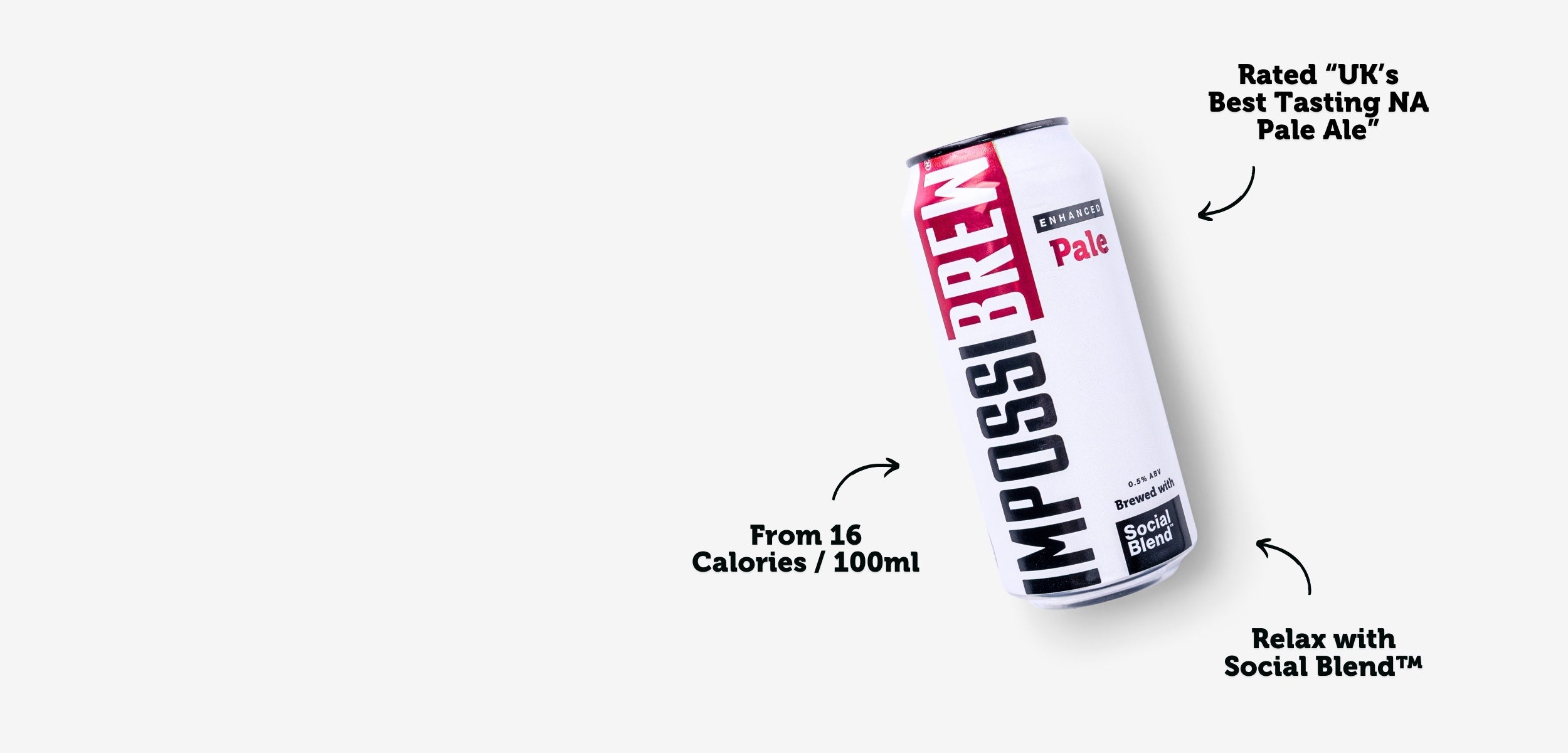
Next Generation Alcohol-Free Beer
IMPOSSIBREW®: The Enhanced Non-Alcoholic Beer designed as an alternative to full ABV beers using patent-pending technology*.
Enjoy a healthier daily wind down with the beer that matches the taste and feeling of traditional alcohol.
Keep the pleasure and ritual of drinking without worrying about your health.
Get StartedAward-winning Taste
Rated "UK's Best Non-Alcoholic Beer" by the prestigious World Beer Awards.
From 16 Calories / 100ml
Low Calorie. Low Carb. Vegan-friendly. <0.5% ABV. Gluten-Free (Lager)
Social Blend™
Our proprietary alcohol alternative made from a blend of science-backed ingredients designed to replicate the sensory, social and relaxing experience of drinking. Read more here.
Got Questions?
Find our most commonly asked questions below or ask our AI Brewer for instant answers.
What is IMPOSSIBREW®?
IMPOSSIBREW® is a pioneering non-alcoholic beer brand based in the UK that aims to create the world's most complete alcohol alternative using patent-pending technology.
Founded by Mark Wong in 2021 and working with some of the world's best professors, scientists and expert brewers, IMPOSSIBREW® specialises in expertly crafted non-alcoholic beers designed to match full ABV beers in both taste and feeling.
Product Range
IMPOSSIBREW® offers a range of enhanced non-alcoholic beers, including:
- Enhanced Lager (0.5% ABV)
- Enhanced Pale Ale (0.5% ABV)
- Limited Editions (Seasonal)
Key Benefits
The key feature that sets IMPOSSIBREW® apart is its proprietary "Social Blend™" - a combination of active botanical ingredients and nootropics using patent-pending technology* designed to recreate the relaxing effects of alcohol without the negative side effects.
Along with record-breaking quality flavour that comes from a unique process without removing alcohol.
Social Blend™ Ingredients
Developed with leading scientists in top UK universities, Social Blend™ includes:
- L-Theanine
- Ashwaghanda
- Soluble Plant Fibres
- Vitamin B1
- Various Plant Extracts.
These ingredients are chosen for their potential to boost serotonin, promote relaxation, and create a calming effect similar to the "one or two pint feeling" without hangovers.
See more details on our very own research paper, with over 1,000 participants:
- More than 70% said they felt relaxed after consuming IMPOSSIBREW®.
- 88% have reduced alcohol consumption since discovering IMPOSSIBREW®.
- 95% have told a friend about IMPOSSIBREW® after trying.
- 3/4 say that IMPOSSIBREW® is "the most complete alcohol alternative currently available on the market today".
Recognition
IMPOSSIBREW® has received several notable achievements:
- Featured on BBC's Dragons' Den
- Awarded the first and only Gold Medal in the No/Low beer category from the London Beer Competition
- Received multiple industry Gold awards in categories against Full-ABV beers
- Most followed No/Low Alcohol brand on TikTok globally.
Mission and Vision
IMPOSSIBREW® is on a mission to redefine non-alcoholic drinking by creating better-than-alcohol alternatives for those who love beer but want to avoid the health risks associated with alcohol consumption.
The company aims to become the global leading alcohol alternative brand, focusing on helping people transition to a healthier mode of relaxation without the traditional issues and side effects of alcohol.
Production and Ingredients
IMPOSSIBREW® combines traditional brewing methods with their proprietary Social Blend™ along with patent-pending technology*
The beers are made with traditional brewing ingredients such as water, malted barley, wheat, hops, and yeast, in addition to the Social Blend™ components - leveraging their unique cryogenic fermentation process, which means no alcohol is ever removed from the product - ensuring the most authentic quality taste you've come to expect.
Who is it for?
IMPOSSIBREW® caters to consumers who:
- Are busy professionals and parents who would like to unwind with a drink but don't want the hangovers.
- Enjoy the taste and relaxing experience of beer
- Are looking for healthier alternatives to alcohol, with lower calories, carbs and sugar
- Want to avoid hangovers and other negative effects of alcohol consumption
- Are interested in functional beverages with potential mood-enhancing properties
By offering a unique product that aims to replicate both the taste and feeling of alcoholic beer, IMPOSSIBREW® is positioning itself at the forefront of the growing non-alcoholic beverage market.
Get Started Today
Give it a try today with our Welcome Bundle and get 2 Free Beers with your first purchase. Get it delivered straight to your door, risk-free with our 30-day money-back guarantee.
We hope you enjoy them as much as we do and we can't wait for you to try.
*Patent pending in the UK under application number GB2415685.3
How does 'Social Blend™' work?
Social Blend™ is our proprietary alcohol alternative made from a blend of science-backed ingredients using patent-pending technology*.
Designed to replicate the sensory and social relaxing experience of drinking, minus the headaches (and bad decisions).
Developed with Dr Paul Chazot, Bioscience Professor and Chair of Pharmacology at Durham University.
Key Components and Mechanisms
- L-Theanine:
- Ashwagandha Root:
- Vitamin B1 (Thiamine):
- Various nootropic herbs:
Benefits
- Relaxation: The blend promotes a state of relaxation without the sedative effects typically associated with alcohol.
- Mental Calm: By boosting alpha brain waves and serotonin levels, it helps maintain a calm and focused mental state.
- Stress Relief: The combination of L-Theanine, Ashwagandha, and Vitamin B1 helps mitigate stress and anxiety.
- Mood Enhancement: The inclusion these ingredients and other botanicals supports mood regulation and overall positive outlook.
IMPOSSIBREW®'s Social Blend™ is a carefully crafted combination of nootropic and adaptogenic ingredients designed to offer a relaxing and mood-enhancing experience without the drawbacks of alcohol. It leverages the natural properties of its components to promote relaxation, reduce stress, and enhance mood, making it a unique alternative to traditional alcoholic beverages.
(Read our latest research paper here)
*Patent pending in the UK under application number GB2415685.3
Do you ship overseas?
We ship to the UK Mainland for free when you spend over £35
We aim to expand internationally soon - stay tuned!
If you have any queries, feel free to email: hello(@)impossibrew.co.uk
How long will it take to get my orders?
For UK mainland deliveries, normal orders processed here will take 1-3 business days to arrive, with an optional upgrade to Next Day Delivery available (12pm cut-off).
Delivery details will be provided in your confirmation email.
How is 0.5% ABV alcohol-free?
Yes, we know it's confusing. Isn't 0.5% ABV still alcoholic? Officially, 0.5% ABV is classified as Dealcoholised.
- In fact, most things we consume daily have more than 0.5% ABV
- Burger Rolls - 1.2% ABV
- Orange Juice - 0.5% ABV
- Ripe Banana - 0.5% ABV
After more than 2 years of research, we've found that the 0.5% ABV from our natural brewing process significantly increases both flavour and mouthfeel - without spiking your blood alcohol level (BAC).
Is it really gluten-free?
Yes, IMPOSSIBREW® Enhanced Lager is gluten-free. Even though it contains wheat and barley, our beers have been third-party tested to contain less than 10 parts per million (PPM) of gluten, which meets the criteria to be listed as, and labeled gluten-free.
Does it have alcohol tax?
No. While it is true that our beers don't contain alcohol, and thus don't incur UK alcohol duty, we'd like to highlight some factors here that might be helpful in reflecting the value we provide.
- One-to-One Brewing Process: At IMPOSSIBREW, we take pride in our unique brewing techniques. Unlike other non-alcoholic beers, our products are never diluted, watered-down, or have their alcohol content removed - and some even dilute their alcoholic beers up to 5x. This means that our brewing process involves the same level of craftsmanship, time, and resources as a traditional craft beer, resulting in comparable production costs.
- Effective Nootropics: In our commitment to creating the most relaxing non-alcoholic beers, we utilise only the highest quality nootropics as our active ingredients, in safe and effectives dosages. At current alcohol tax rates for a 5% ABV beer, the cost of our nootropics more than double that. Instead of contributing the amounts as tax, why not have it contribute to the product quality itself?
- Small Scale Brewing: Currently, we operate on a smaller scale, which makes us less competitive than large, commercial brewers (often +10,000x our brewing size). As a growing business, we are passionate about our mission to create unique, high-quality non-alcoholic experiences, and we truly appreciate your support. As we continue to grow and expand our production capabilities, we look forward to passing on even more savings to our valued community!
At IMPOSSIBREW, we prioritise offering our customers an enhanced, premium, non-alcoholic beer experience by combining innovative brewing techniques, quality active nootropic ingredients, and award-winning taste. While our pricing may differ from other non-alcoholic competitors, we believe that the value proposition and unique experience our beers provide are well worth it.
At the end of the day, tasting is believing. So give it a try and let us know what you think - risk-free with our IMPOSSIBREW® Guarantee.
Who shouldn't drink IMPOSSIBREW®?
It is not recommended for pregnant or breastfeeding women, those with certain medical conditions like GI disorders or hypertension, or individuals taking specific medications such as antidepressants, immunosuppressants or blood thinners. If you fall into any of these categories, it's best to consult with your doctor first.
Ashwagandha can lead to overstimulation (i.e. restlessness) if taken alongside thyroid medication.
What is your philosophy?
For thousands of years, we had only one way to unwind together. One way to let our guards down. One way to bridge the gap between who we are and who we are with others.
Not because it was perfect. But because it was all we had.
We decided that wasn't good enough.
We exist because we believe in a world where social connection doesn't demand compromise.
Where being present with others doesn't mean being absent from yourself. Where letting go doesn't mean losing control.This isn't about removing alcohol. This is about something better.
Our Social Blend™ technology isn't an accident. It's the result of questioning everything we thought we knew about social drinking. About working with scientists to understand what we're really seeking in these moments of connection. About daring to imagine something that wasn't possible before.
We believe the greatest innovations don't just solve problems - they change how we live. They make us question why we ever settled for less.
That's what we're building. Not just a drink, but a new way forward. A future where social connection comes without compromise. Where tradition meets innovation. Where science meets ritual.
This is the future of social drinking.
Got more questions?
Speak to our AI Brewer here for instant answers.
Or email us at hello@impossibrew.co.uk
Our customer support is available Monday to Friday: 9am - 5:30pm.

















